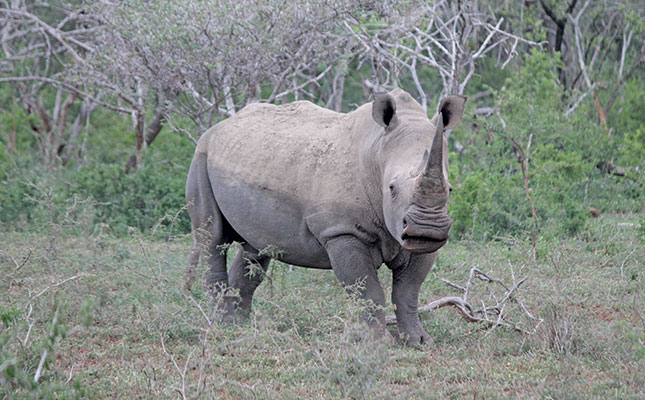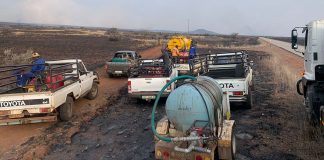
Photo: FW Archive
This was according Barbara Creecy, the Minister of Forestry, Fisheries and Environment in a recent statement on the incidents of rhino poaching in the first six months of the year.
According to the statement, 259 rhinos were poached for their horns during this period, compared with 249 during the same period last year. These included 82 within the Kruger National Park, 210 on other state properties, and 49 in privately-owned parks.
KwaZulu-Natal was the hardest hit, with poaching numbers increasing from 33 in the first six months of 2021, to 133 in the first six months this year.
Last year, a total of 451 rhinos were poached over the entire year. Of these, 327 were in government reserves and 124 within private properties, which represented a 24% decrease in rhino poaching compared with the pre-COVID-19 pandemic period in 2019, but indicated an increase in poaching on private properties.
In a recent article, the Save the Rhino conservation charity attributed the increase in poaching in KwaZulu-Natal to the fact that the number of rhinos in the Kruger National Park had declined by 59% since 2013.
In addition, the COVID-19 pandemic plunged many reserves into survival mode due to the restrictions on tourism, which negatively affected budgets for securing rhino populations.
Along with this, there had been instability at Ezemvelo KZN Wildlife, the management authority for state-owned reserves across that province, with allegations of poor management, declining standards, and the mismanagement of day-to-day operations, the article said.
Francois du Toit, CEO of the African Conservation Trust, told Farmer’s Weekly that the strengthening of anti-poaching activities in the Kruger National Park, also resulted in poaching intensifying in other areas.
“The Rhino Project is doing a sterling job in the fight against poaching through aerial support, [anti-poaching] dogs and the training of rangers, while rangers are going beyond the call of duty, working for weeks on end with no sleep. We need government to intensify support across all regions to prevent shifts like this,” he said.
Creecy also highlighted the role of rangers in the anti-poaching battle. “The work of rangers has changed from a general focus on the conservation of species to a more militant way of operating against well-armed criminal gangs entering national parks and private and state-owned conservation areas to poach rhino, elephant and other species.”
According to the department, 69 people were arrested in connection with rhino poaching and rhino horn trafficking between January and June this year. Of these, 13 were arrested in the Kruger National Park.
In total, 51 cases in which 51 people were convicted had been finalised. The heaviest sentence handed down was 34 years imprisonment.
The global money laundering and terrorist financing watchdog, the Financial Action Task Force, completed an assessment of the threats posed to South Africa in 2019, in which the contribution of wildlife trafficking in the generation of proceeds of crime was found to pose a medium to high risk to the country.
Responding to the recommendations, the National Prosecuting Authority obtained its first conviction on a stand-alone charge in terms of Section 6 of the Prevention of Organised Crime Act, relating to money laundering.
In this matter, an individual was accused of laundering the money earned from buying rhino horn, among other exploits, through a casino. He was sentenced to five years imprisonment.











